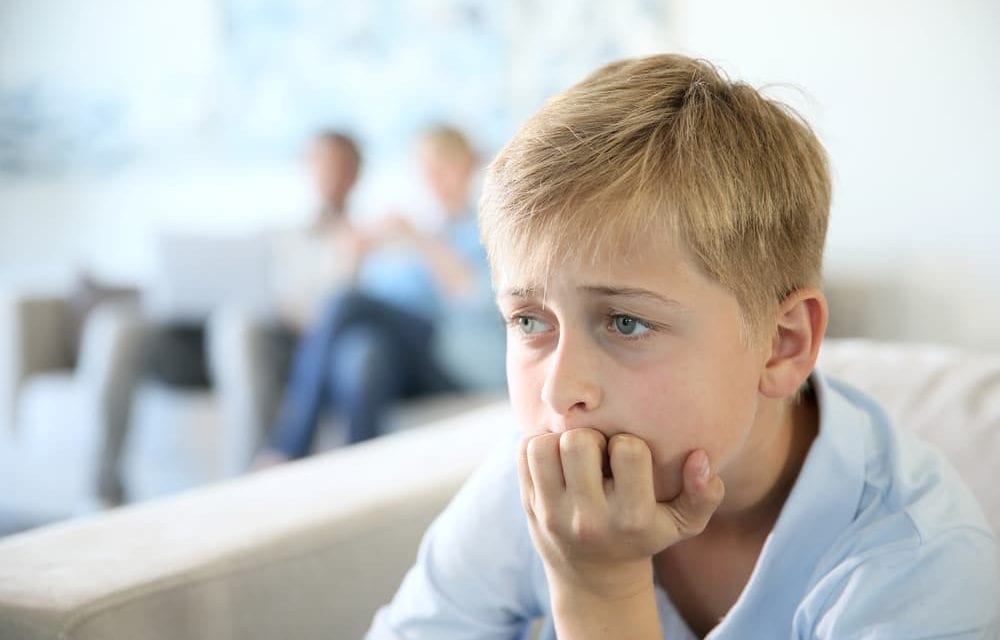 It seems that everywhere you turn there is an article discussing the additional demands and challenges upon children. There are media commentaries focused upon parental and societal, as well as academic and athletic pressures. It appears that the media often glamorize the struggles of today’s youth, and the impression is that the difficulties today are significantly more stressful than those of years past.
It seems that everywhere you turn there is an article discussing the additional demands and challenges upon children. There are media commentaries focused upon parental and societal, as well as academic and athletic pressures. It appears that the media often glamorize the struggles of today’s youth, and the impression is that the difficulties today are significantly more stressful than those of years past.
It’s Just Not True!
In a recent study conducted by Thomas Achenbach and reported in the Journal of Emotional Behavioral Disorders, a large national sample revealed no changes between 1989 and 1999 for youths 11 to 18 years old. This is a decade reflecting many major changes in patterns of behavior for teens.
Yet, the overall pattern of reported stress has not shifted. As has frequently been demonstrated, adolescents tend to perceive more problems and struggles than parents or teachers perceive. This finding did not change: There was no increase in reported problems as experienced by youth – despite ten years of escalating access to video games, enhanced TV and videos, computers, and cell phones. In addition, many articles have speculated about the impact of several youth-related tragedies (i.e., Columbine shooting, school violence, etc), but no data support that youth have been adversely affected.
How Do We Explain This?
Bottom line: Everyday stress hasn’t changed. While there are changes, many of the day-to-day issues remain relatively unchanged.
 For most kids, their everyday thoughts and concerns remain focused on everyday activities: The unmotivated are still doing battles with their parents about homework. The successful, driven kids get their work done without much parental encouragement. These differences have always existed.
For most kids, their everyday thoughts and concerns remain focused on everyday activities: The unmotivated are still doing battles with their parents about homework. The successful, driven kids get their work done without much parental encouragement. These differences have always existed.
For most, they would rather choose what is easier and more immediately gratifying – rather than doing the kinds of things that would serve them in the long run. This has always been that way.
For kids who like sports, some of them get into it too much, and others don’t care all that much. This is the way it has always been.
There are more kids who are becoming couch potatoes, and this has influenced the obesity rates for our youth. Yet, being a couch potato is not all that stressful. Don’t get me wrong: it’s not that rewarding either. It’s just that being parked in front of the TV for four hours a day doesn’t promote high degrees of anxiety.
As kids get older, most are trying hard to fit in. This is of utmost importance. It’s always been this way. Of course, now, there may be a few more options for fitting in. There are more degrees of acceptability. Rather than two brands of blue jeans, there are forty-seven brands of blue jeans, and each of them has a certain status ranking. And, for the average kid, they’d still prefer to have the clothes that are “cool” – rather than the clothes that are out. It’s always been this way, and it’ll probably always be that way.
The question of whether they will get to go to the football game is still more important than the news about a school shooting miles away. It’s just reality. Most kids are consumed with their day-to-day worries and struggles, and the many changes around them do not seem to affect their fundamental concerns.
I hope that I am not sounding like a pessimist because that’s not my intention. Instead, I just want to stay grounded in reality.
Everyday worries and behaviors remain the focus of most kids.
effortless daily routines box
 It’s always helpful to make certain we don’t weave stories based upon our perceptions of how children are affected by changes. Parents tend to project their adult perspectives into the many adjustments that children encounter. Thus, we often over-estimate the impact of change upon kids. However, it appears that children remain remarkably resilient, and flexible in their ability to respond to changing cultural and societal expectations.
It’s always helpful to make certain we don’t weave stories based upon our perceptions of how children are affected by changes. Parents tend to project their adult perspectives into the many adjustments that children encounter. Thus, we often over-estimate the impact of change upon kids. However, it appears that children remain remarkably resilient, and flexible in their ability to respond to changing cultural and societal expectations.
This is all good news. I encourage you to relax more, enjoy your kids more, and avoid contemplating fears about how tough we have made things for our youth.
Reality Check: Kids have more. Kids experience more. Kids have more entertainment. Kids travel more. And yet, they are not more joyful, or more appreciative. Their struggles remain focused primarily on everyday issues, and this is where most of our energies need to remain – when it comes to guiding our youth.
Again, these findings help to ground us in reality. Rather than being driven by fear and worry about events and changes out of our control, we can focus again on the facts. You do make a difference. The focus of your energies is best spent on mastering the fundamental parenting strategies that maximize your influence as a parent. One of the best strategies to help your kids reduce their everyday stress is to learn how to create effortless daily routines. Please consider my new program, Effortless Daily Routines, as a powerful solution that offers lifelong advantages for your children. Learn more by clicking here!














